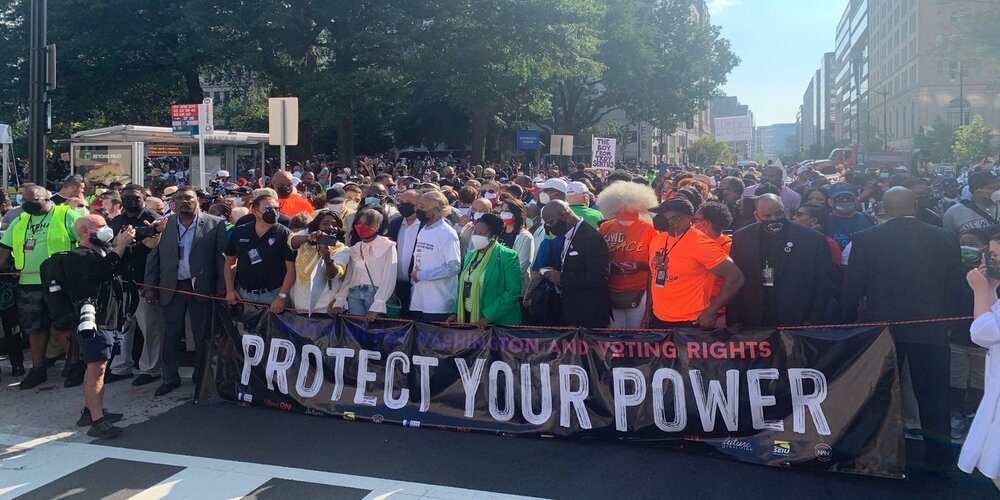
Tens of thousands of people have staged protests in Washington and dozens of other U.S. cities to protest against laws in several Republican-led states that critics say will make it harder for minorities to vote.
In 1965, the U.S. Congress adopted the Voting Rights Act, meant to ban discriminatory election measures.
However, since then some states, mainly in the South, passed often technical changes that ultimately made it harder for African Americans and other minority groups, who tend to be reliably Democratic, to vote.
Those measures have seen a sharp rise as former President Donald Trump hammered away at the allegation that massive voting fraud had cost him victory in the November 2020 presidential election.
The huge rallies aim to pressure lawmakers to pass legislation to challenge a wave of ballot restrictions in the Republican-led states. Organizers did not pick the date of the demonstrations by coincidence either.
Thousands converged on the nation's capital to demand the protection of voting rights, walking in the footsteps of the 250,000 people who historically marched on Washington 58 years before for a massive civil rights rally highlighted by the Martin Luther King Jr.'s famous "I have a dream" speech.
Civil rights leaders, including Martin Luther King III, Arndrea Waters King, and the Reverend Al Sharpton, were leading marches in Washington, D.C., Houston, Miami, Phoenix, and more than 40 other cities. Organizers of the protests have denounced what they labeled as "racist, anti-democratic voter suppression laws".
According to the Brennan Center for Justice, a nonprofit public policy institute, since January this year, at least 18 states have adopted a total of 30 restrictive election laws, with dozens of others under consideration, Those laws range from a requirement to have a fixed address in order to register to vote to a ban on the drive-through voting that was popular in some states last year amid the Covid-19 pandemic.
The Democratic-controlled House of Representatives has passed two draft laws to limit such restrictions, but they are given virtually no chance of passing the closely divided Senate.

No comments:
Post a Comment